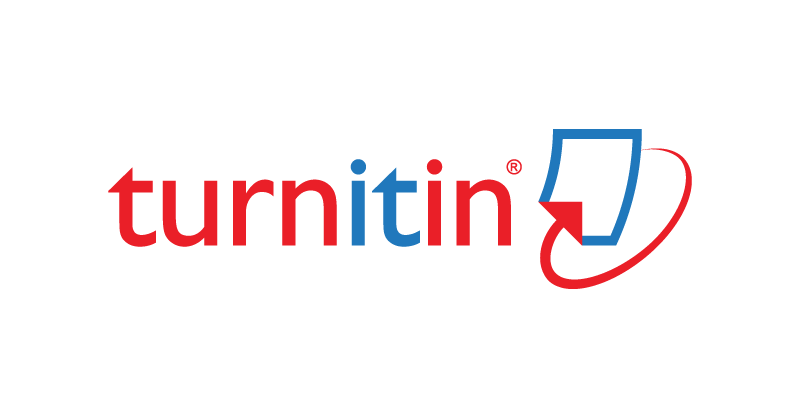Pengaruh Privasi, Keamanan, Keandalan, dan Transparansi Terhadap Minat Penggunaan Payment Fintech UMKM di Watukelir
Abstract
Full Text:
PDFReferences
Aditya, T., & Mahyuni, L. P. (2022). Pengaruh literasi keuangan, persepsi kemudahan, manfaat, keamanan dan pengaruh sosial terhadap minat penggunaan fintech. FORUM EKONOMI, 24(2), 245–258.
Al Nawayseh, M. K. (2020). Fintech in COVID-19 and beyond: what factors are affecting customers’ choice of fintech applications? Journal of Open Innovation: Technology, Market, and Complexity, 6(4), 153.
Aseng, A. C. (2020). Factors Influencing Generation Z Intention in Using FinTech Digital Payment Services. CogITo Smart Journal, 6(2), 155–166.
Azizah, N., Hasbi, S., & Yetty, F. (2021). Pengaruh Brand Awareness, Transparansi, Dan Kepercayaan Terhadap Keputusan Menyalurkan ZIS Di KITABISA. COM. Jurnal Ekonomi Syariah Pelita Bangsa, 6(02), 111–125.
Bank Indonesia. (2022). Peraturan Bank Indonesia Nomor 19/12/PBI. 2017. Tentang Penyelenggaraan Teknologi Finansial.
Bank OCBC NISP. (2022). Financial Fitness Index 2022.
Benuf, K., Mahmudah, S., & Priyono, E. A. (2019). Perlindungan Hukum Terhadap Keamanan Data Konsumen Financial Technology Di Indonesia. Refleksi Hukum: Jurnal Ilmu Hukum, 3(2), 145–160.
Bourne, C. (2020). Fintech’s transparency–publicity nexus: Value cocreation through transparency discourses in business-to-business digital marketing. American Behavioral Scientist, 64(11), 1607–1626.
Chan, C., Wang, H., Kong, Y., & Lin, J. W. (2021). An analysis of COVID-19 impacts on S&P 500 and FinTech index. International Journal of Financial Engineering, 8(02), 2141003.
Dewi, M. S., & Aslami, N. (2022). Marketing Strategy Analysis of Ovo Digital Wallet Customers Interest. CASHFLOW: Current Advanced Research On Sharia Finance And Economic Worldwide, 1(3), 23–28.
Ebeling, C. (1995). Reliability and Maintainability model(RAM) user and maintenance manual(Annual Report).
Gunawan, F., & Aprianingsih, A. (2017). Assesing Customer Acceptance Toward Intention To Use E-Toll Card Using Technology Acceptance Model (TAM). Journal of Business and Management, 6(2), 311–320.
Irawan, D., & Affan, M. W. (2020). Pengaruh privasi dan keamanan terhadap niat menggunakan payment Fintech. Jurnal Kajian Akuntansi, 4(1), 52–62.
Jangir, K., Sharma, V., Taneja, S., & Rupeika-Apoga, R. (2022). The Moderating Effect of Perceived Risk on Users’ Continuance Intention for FinTech Services. Journal of Risk and Financial Management, 16(1), 21.
Kapoor, K., Mugwara, D., & Chidavaenzi, I. (1997). Empowering small enterprises in Zimbabwe (Vol. 379). World Bank Publications.
Khuong, N. V., Phuong, N. T. T., Liem, N. T., Thuy, C. T. M., & Son, T. H. (2022). Factors Affecting the Intention to Use Financial Technology among Vietnamese Youth: Research in the Time of COVID-19 and Beyond. Economies, 10(3), 57.
Krina, L. L., & Lalolo, L. (2003). Indikator dan alat ukur prinsip akuntabilitas, transparansi dan partisipasi. Jakarta: Badan Perencanaan Pembangunan Nasional.
Kurniawan, R. (2019). Examination of the factors contributing to financial technology adoption in Indonesia using technology acceptance model: case study of peer to peer lending service platform. 2019 International Conference on Information Management and Technology (ICIMTech), 1, 432–437.
Mahardika, M. ., F, A., & Mardi. (2021). Pengaruh Kemudahan Penggunaan, Keamanan dan Persepsi Risiko Terhadap Minat Penggunaan Financial Technology (Fintech) Payment Linkaja Syariah. Indonesian Journal of Economy, Business, Entrepreneuship and Finance, 1(3). https://doi.org/https://doi.org/10.53067/ijebef
Nangin, M. A., Barus, I. R. G., & Wahyoedi, S. (2020). The effects of perceived ease of use, security, and promotion on trust and its implications on fintech adoption. Journal of Consumer Sciences, 5(2), 124–138.
Nasir, A., Shaukat, K., Iqbal Khan, K., A. Hameed, I., Alam, T. M., & Luo, S. (2021). Trends and directions of financial technology (Fintech) in society and environment: A bibliometric study. Applied Sciences, 11(21), 10353.
Park, C.-H., & Kim, Y.-G. (2006). The effect of information satisfaction and relational benefit on consumers’ online shopping site commitments. Journal of Electronic Commerce in Organizations (JECO), 4(1), 70–90.
Sahi, A. M., Khalid, H., & Abbas, A. F. (2022). Barriers to Using Mobile Payment Technology. In Artificial Neural Networks and Structural Equation Modeling: Marketing and Consumer Research Applications (hal. 245–273). Springer.
Setiawan, A., & Sulistiowati, L. H. (2017). Penerapan modifikasi technology acceptance model (TAM) dalam e-business. Jurnal Manajemen dan Pemasaran Jasa, 10(2), 171–186.
Sugiyono. (2017). Penelitian Kuantitatif Kualitatif dan R&D. Bandung: Alfabeta.
DOI: https://doi.org/10.31294/widyacipta.v7i2.15976
Copyright (c) 2023 Setiyawati Budi Utami, Andy Dwi Bayu Bawono, Noer Sasongko

This work is licensed under a Creative Commons Attribution-ShareAlike 4.0 International License.
Index by:
Published LPPM Universitas Bina Sarana Informatika with supported by Relawan Jurnal Indonesia
Jl. Kramat Raya No.98, Kwitang, Kec. Senen, Jakarta Pusat, DKI Jakarta 10450, Indonesia

This work is licensed under a Creative Commons Attribution-ShareAlike 4.0 International License





